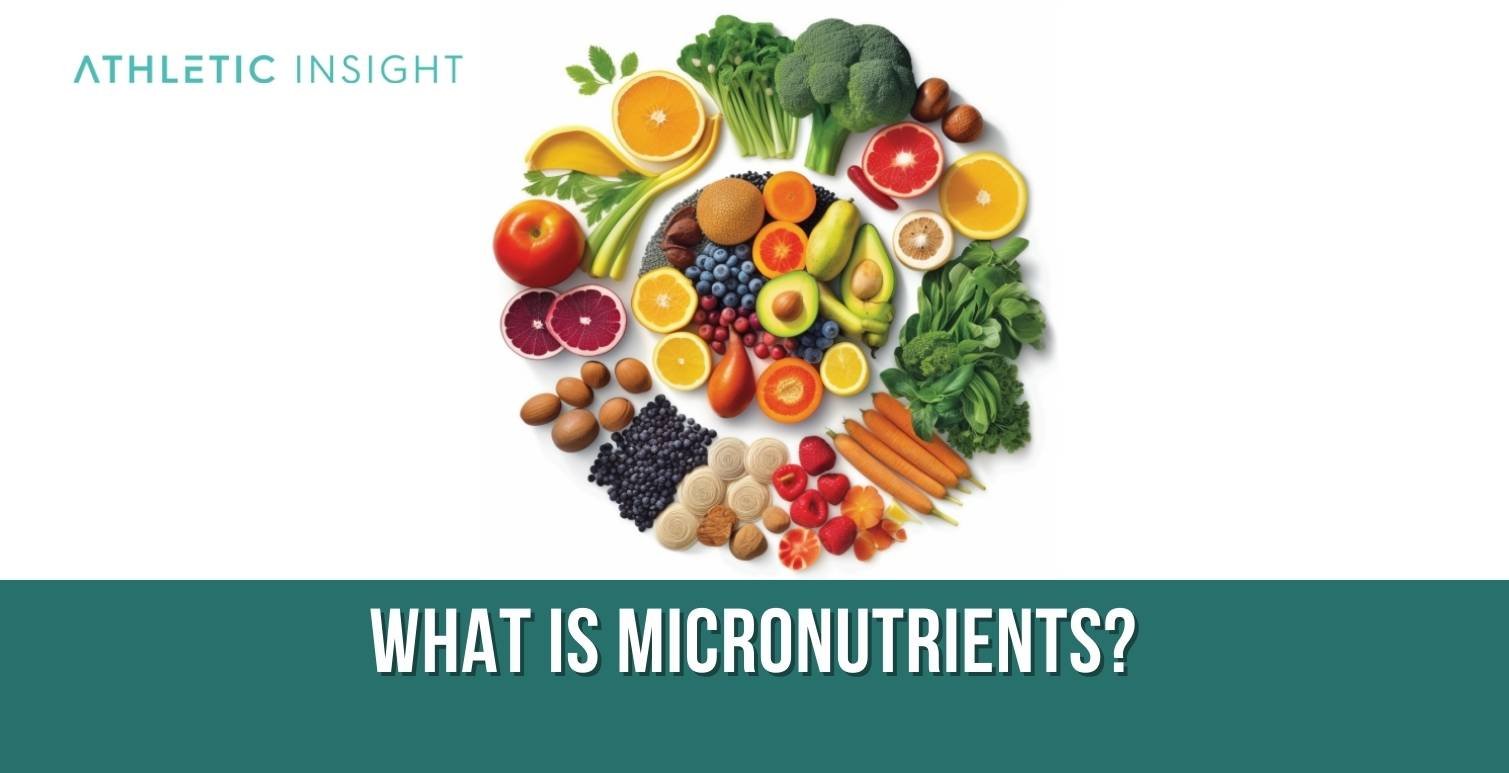Micronutrients, as the name suggests, are nutrients required by the human body in minute amounts, but despite their diminutive requirement, they are essential for healthy body function. Encompassing various vitamins and minerals, micronutrients are involved in an array of bodily functions, from supporting bone health and immunity to ensuring proper functioning of nerves and muscles.
What is Micronutrients?
Micronutrients are a group of nutrients comprising vitamins and minerals required by the human body in small quantities to ensure its normal growth, development, and overall well being. Despite being required in tiny amounts, they are indispensable as they play a crucial role in the production of enzymes, hormones, and other substances that facilitate growth and repair. They also aid in the prevention and fight against diseases.

What Does Micronutrients Do?
Micronutrients, such as vitamins and minerals, perform an array of vital functions. They are involved in the production of hormones and enzymes, the regulation of metabolism and heartbeat, the transportation of oxygen throughout the body, and the fortification of bones. Vitamins like A, C, and E serve as powerful antioxidants that protect cells against damage from free radicals, thereby maintaining the integrity of cellular structures. Minerals like zinc, iron, and selenium, on the other hand, bolster the immune system and ensure the body’s defense mechanism against pathogens remains efficient.
How Can you Get Micronutrients?
Micronutrients are predominantly derived from a varied and balanced diet. Different food groups provide different types of micronutrients. Fruits and vegetables, for example, are rich in vitamins, such as vitamin C and folate. Meats, seafood, and legumes provide ample iron and zinc. Dairy products offer a generous supply of calcium and vitamin D, while whole grains are a good source of B vitamins. Therefore, a balanced diet that includes a variety of food items is key to ensuring the adequate intake of all essential micronutrients.
What are the 4 Types of Micronutrients?
Micronutrients are typically categorized into four main types: water-soluble vitamins, fat-soluble vitamins, macrominerals, and trace minerals. These four micronutrients make up one’s total Recommended Dietary Allowance (RDA) for a given day.
- Water-Soluble Vitamins
- Fat-Soluble Vitamins
- Macrominerals
- Trace Minerals

1. Water-Soluble Vitamins
Water-soluble vitamins are those that dissolve in water and are not stored in the body. As such, they need to be consumed regularly in the diet to prevent deficiency. They include the B vitamins and vitamin C.
| Vitamin/Mineral | RDA | Dietary Sources |
| Vitamin C | 75-90 mg | Citrus fruits, strawberries, bell peppers, broccoli |
| Vitamin B1 (Thiamine) | 1.1-1.2 mg | Whole grains, pork, fish |
| Vitamin B2 (Riboflavin) | 1.1-1.3 mg | Eggs, organ meats, lean meats, milk |
2. Fat-Soluble Vitamins
Fat-soluble vitamins are those that dissolve in fat and can be stored in the body for longer periods. The main fat soluble vitamins include vitamins A, D, E, and K.
| Vitamin/Mineral | RDA | Dietary Sources |
| Vitamin A | 700-900 mcg | Liver, fish oils, green leafy vegetables, yellow and orange vegetables and fruits |
| Vitamin D | 15-20 mcg | Fatty fish, fish liver oils, fortified dairy products, fortified cereals |
| Vitamin E | 15 mg | Vegetable oils, green leafy vegetables, fortified cereals, nuts, seeds |
3. Macrominerals
Macrominerals are minerals that the body needs in larger amounts. They include calcium, phosphorus, magnesium, sodium, potassium, chloride, and sulfur.
| Mineral | RDA | Dietary Sources |
| Calcium | 1000-1200 mg | Milk, cheese, yogurt, leafy green vegetables |
| Phosphorus | 700 mg | Meat, fish, poultry, eggs, milk |
| Magnesium | 310-420 mg | Nuts, seeds, whole grains, green leafy vegetables, fish |
4. Trace Minerals
Trace minerals, as their name suggests, are required by the body in very small amounts. They include iron, manganese, copper, iodine, zinc, cobalt, fluoride, and selenium.
| Mineral | RDA | Dietary Sources |
| Iron | 8-18 mg | Meat, seafood, poultry, beans, lentils, and fortified cereals |
| Zinc | 8-11 mg | Meat, shellfish, legumes, seeds, nuts, dairy, eggs |
| Copper | 900 mcg | Organ meats, shellfish, whole grains, nuts, seeds |
What are the 6 Essential Micronutrients?
The human body requires an array of micronutrients for optimal health, but six stand out for their particularly essential roles: vitamin A, vitamin D, iron, iodine, folate, and zinc. These micronutrients support a range of critical functions, from maintaining vision and supporting immune function to promoting cell growth and supporting reproductive health.
- Vitamin A
- Vitamin D
- Iron
- Iodine
- Folate
- Zinc

1. Vitamin A
Vitamin A, also known as retinol, is crucial for maintaining good vision, supporting the immune system, and ensuring the normal functioning of several organs. It also plays a vital role in reproduction and embryonic development.
2. Vitamin D
Vitamin D is indispensable for maintaining healthy bones and teeth as it facilitates the absorption of calcium in the body. It also modulates cell growth and plays a crucial role in immune function and inflammation reduction. For the best Vitamin D supplements, consider a trusted brand that is NSF certified.
3. Iron
Iron is a key component of hemoglobin, a protein in red blood cells that carries oxygen from the lungs to the rest of the body. Also, iron supplements are necessary for the proper functioning of cells and the creation of some hormones.
4. Iodine
Iodine is crucial for thyroid function, as it is an essential component of thyroid hormones, which control many biochemical reactions, including protein synthesis and enzymatic activity. They are also critical for metabolic activities and the development of the nervous system in infants and children.
5. Folate
Folate, also known as vitamin B9, is vital for cell growth and the metabolism of amino acids. It is particularly critical during pregnancy for the normal development of the neural tube in embryos.
6. Zinc
Zinc is crucial for the functioning of more than 300 enzymes in the human body. It plays a vital role in protein synthesis, wound healing, DNA synthesis, and cell division. Finally, zinc supplementation also supports normal growth and development during pregnancy, childhood, and adolescence.
Why Are Micronutrients Important?
Micronutrients, despite being needed in minute amounts, are critical to human health. They help the body produce enzymes, hormones, and other substances essential for growth and development. They serve vital functions in various bodily processes, including wound healing, immunity, eye health, bone health, and energy production. Furthermore, they also aid in the prevention of chronic diseases like heart disease and cancer, highlighting their significance in the maintenance of overall health.
What are the Benefits of Micronutrients?
The benefits of micronutrients are extensive and diverse, encompassing every aspect of bodily function. Overall, there are five major benefits of micronutrients including enhanced immunity, bone health, skin health, energy production, and blood health.

- Enhanced Immunity: Certain micronutrients like vitamins C, E, and A, and minerals such as zinc and selenium, boost the immune system, helping the body to resist infections and diseases.
- Bone Health: Calcium, phosphorus, magnesium, and vitamin D play crucial roles in maintaining bone health and preventing disorders like osteoporosis.
- Skin Health: Micronutrients like vitamins C and E, selenium, and zinc contribute to skin health by promoting wound healing, combating free radicals, and reducing inflammation.
- Energy Production: B-vitamins, including thiamin, riboflavin, and niacin, are essential for energy production, converting nutrients into usable energy for the body.
- Blood Health: Iron, vitamin K, and folate are indispensable for the production and function of blood cells.
What are the Risks of Micronutrient Deficiency?
Insufficient intake of micronutrients can lead to deficiencies, with several potential health risks. There are four main risks associated with micronutrient deficiencies including anemia, bone abnormalities, impaired immunity and night blindness.
- Anemia: Iron deficiency can lead to anemia, characterized by fatigue, weakness, and shortness of breath.
- Bone Abnormalities: Deficiencies of vitamin D and calcium can lead to bone abnormalities such as rickets in children and osteomalacia or osteoporosis in adults.
- Impaired Immunity: Deficiencies in several micronutrients, including vitamins A, B6, C, and E, zinc, selenium, iron, and copper, can impair immune function, leading to increased susceptibility to infections.
- Night Blindness: Vitamin A deficiency can result in night blindness, a condition that reduces the ability to see in low light or darkness.
What is Micronutrient Deficiency?
Micronutrient deficiency refers to the condition wherein the body does not obtain the required amount of a specific micronutrient, leading to specific health disorders. Often resulting from inadequate dietary intake or malabsorption issues, such deficiencies can adversely impact growth, disease resistance, and even survival.
What are the Causes of Micronutrient Deficiencies?
Several factors can contribute to micronutrient deficiencies with the three main causes being tied to poor diet, malabsorption and alcoholism.
- Poor Diet: A diet lacking in variety and essential nutrients is the primary cause of micronutrient deficiencies.
- Malabsorption: Certain medical conditions, such as Crohn’s disease or celiac disease, can impair the body’s ability to absorb nutrients, leading to deficiencies.
- Alcoholism: Excessive alcohol consumption can lead to deficiencies in various micronutrients, particularly B-vitamins and vitamin C.
What is Micronutrient Toxicity?
Micronutrient toxicity refers to the condition that arises when the body has an excessive amount of a specific micronutrient. While rare, toxicity usually results from high supplementation of certain vitamins or minerals, which can lead to adverse health effects.
What are the Causes of Micronutrient Toxicities?
There are three main causes of micronutrient toxicities, these include excessive supplementation, medical conditions, and interactions with medications.
- Excessive Supplementation: Overuse of dietary supplements is the most common cause of micronutrient toxicity. This is especially true for fat-soluble vitamins and certain minerals, which the body cannot easily excrete.
- Medical Conditions: Certain health conditions can lead to an overaccumulation of specific micronutrients. For instance, hemochromatosis leads to excess iron in the body.
- Interactions with Medications: Some micronutrients can interact with certain medications, leading to increased levels in the body and potential toxicity.
How Can Micronutrient Supplements Help Deficiencies and Toxicities?
Micronutrient supplements can play a vital role in addressing micronutrient deficiencies by providing specific vitamins and minerals that may be lacking in the diet. They can be particularly beneficial for certain groups with higher micronutrient needs, such as pregnant women, older adults, and individuals with specific health conditions.
When it comes to toxicity, it’s important to note that while supplements can be a cause of toxicity, they can also play a role in managing it. For instance, in cases of iron overload, a healthcare professional may recommend a supplement containing a specific compound to help reduce iron levels in the body. However, it’s essential to use supplements responsibly, as excessive intake can lead to toxicity. It’s always recommended to consult a healthcare professional before starting any supplement regimen.
Is Micronutrients Important?
Yes, micronutrients are indispensable to human health. Despite their minute quantities, they play pivotal roles in almost all physiological functions, including energy production, hemoglobin synthesis, maintenance of bone health, adequate immune function, and protection against oxidative damage. They are also essential in the production of enzymes, hormones, and other substances crucial for growth and development.
Are Vitamins and Minerals Micronutrients?
Yes, vitamins and minerals fall under the category of micronutrients. Both are needed in small amounts and play vital roles in the body. Vitamins are organic substances, which means they are made by plants or animals. They are categorized into fat-soluble vitamins (A, D, E, and K) and water-soluble vitamins (B vitamins and vitamin C).
Minerals, on the other hand, are inorganic elements sourced from the earth, soil, and water, and are absorbed by plants. They are split into two categories: macrominerals (needed by the body in larger amounts) and trace minerals (needed in smaller amounts).



